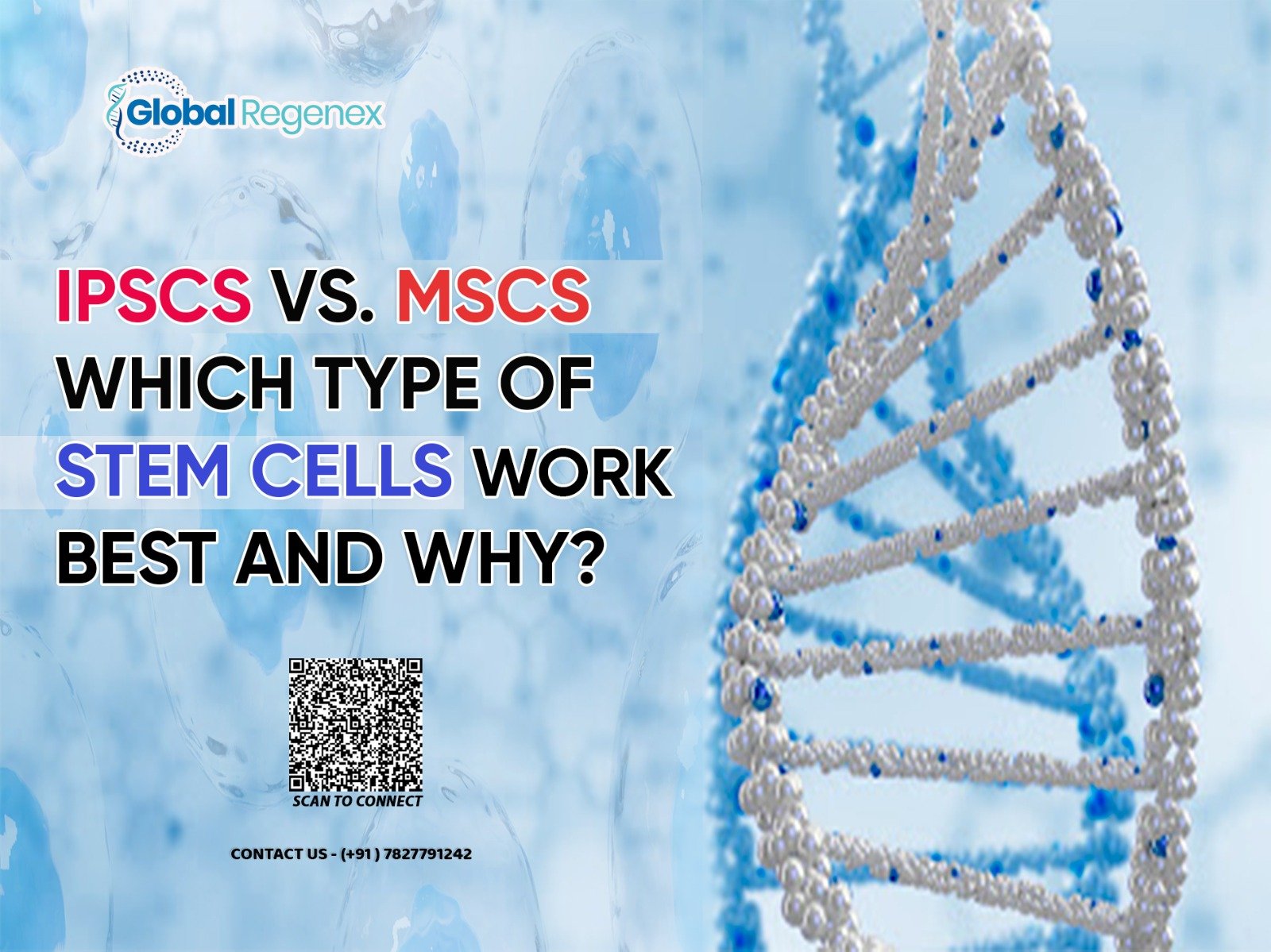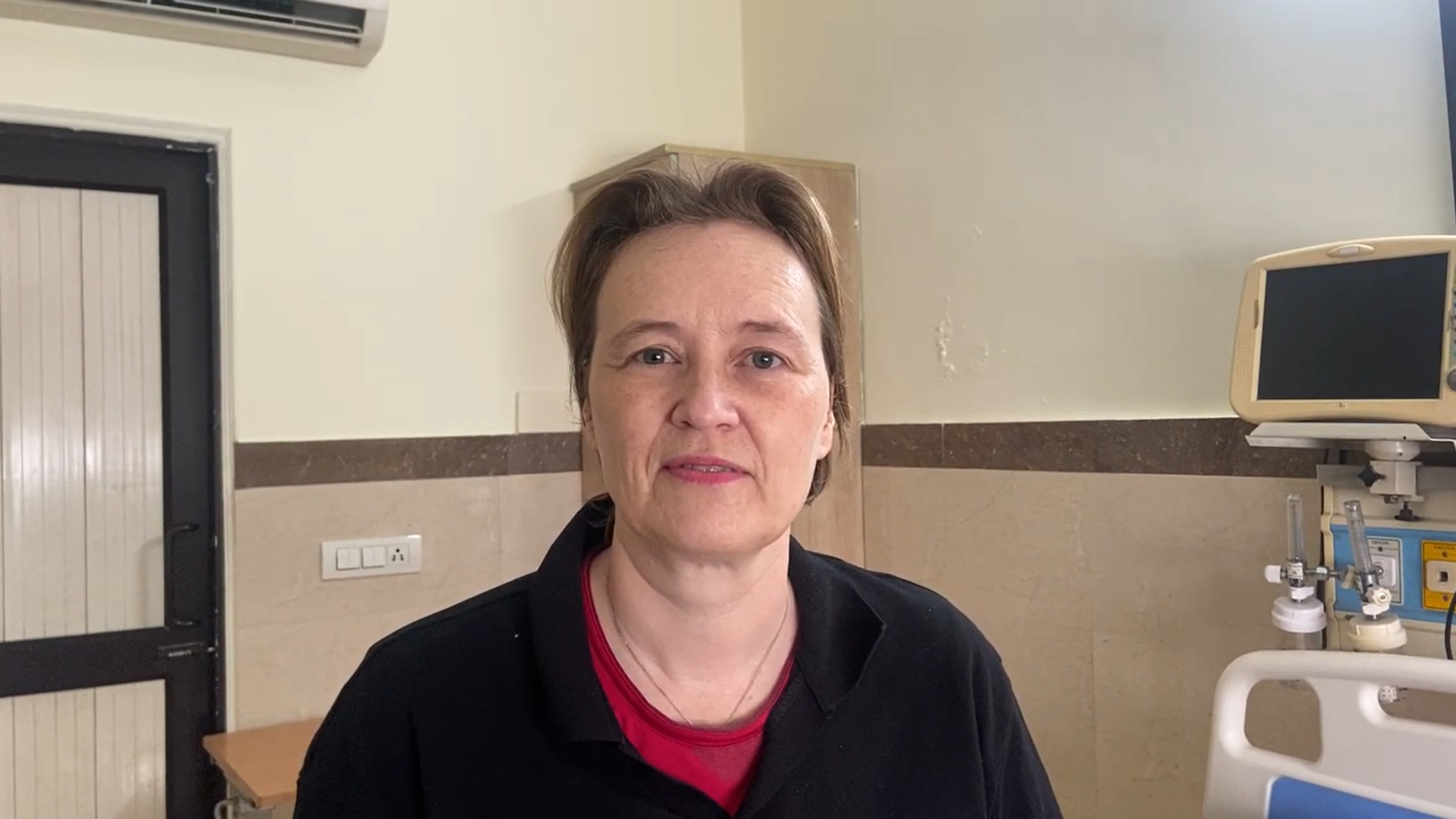Are you suffering from a severe condition? You may have come across regenerative medicine, such as stem cell therapy, which has been a potential alternative for many degenerative conditions previously considered untreatable. However, upon studying stem cell therapy further, you may find two major types: induced pluripotent stem cells (iPSCs) and mesenchymal stem cells (MSCs). So, which one is better, and how do you decide?
To put it in simple words, it depends. Both have unique strengths, different applications, and varying degrees of safety and effectiveness. Whether you are exploring treatment for joint pain, neurodegenerative diseases, etc, understanding the key differences between iPCs and MSCs can help you make an informed decision.
iPCs vs. MSCs: Side-by-Side Comparison
| Feature | iPCs (Induced Pluripotent Stem Cells) | MSCs (Mesenchymal Stem Cells) |
| Source | They are reprogrammed adult cells. | Bone marrow, fat tissue, and umbilical cord. |
| Potency | It is pluripotent in nature and can turn into any cell. | Multipotent is limited to specific lineages. |
| Tumor Risk | Higher risk due to pluripotency. | Low risk. |
| Ease of Use in Therapy | Still under development. | Widely used in clinical applications. |
| Immunogenicity (Rejection Risk) | Potential, if not autologous. | Low, especially in autologous treatments. |
| Ethical Concerns | Minimal (adult cells used). | Minimal. |
| Common Applications | Disease modeling, drug testing, and research. | Orthopedic injuries, inflammation, and aging. |
| Cost and Time | Expensive and time-intensive to prepare. | More affordable and quicker to harvest. |
Key Factors to Consider Before Choosing a Stem Cell Treatment
Let’s analyze it a bit further so that you can see the practical implications of each.
Effectiveness in Therapy
- iPCs are potent because they can differentiate into virtually any cell type.
- MSCs are already being used extensively in stem cell therapy, particularly for joint repair, immune modulation, and skin regeneration.
Safety Profile
- MSCs have an excellent safety profile in clinical trials and in treatments today.
- iPCs have potential but are more likely to create tumors if not handled very accurately.
Regulatory Status
- MSCs are licensed for a number of treatments in various nations.
- iPCs remain mostly in the experimental and research phase.
Accessibility
- MSCs are more accessible and less labor-intensive to process, making them a popular choice for many patients nowadays.
When Should You Use MSCs?
MSCs are usually suggested for conditions such as:
- Osteoarthritis or joint degeneration
- Autoimmune disorders (e.g., lupus, rheumatoid arthritis)
- Sports injuries
- Tissue damage with aging
- Inflammation-based conditions
Where Do iPCs Come In?
Although not yet established in therapy, iPCs are of immense value in:
- Genetic disease research
- Personalized drug screening
- Future regenerative therapies for organs such as the heart and brain
- Parkinson’s and Alzheimer’s related studies
Looking for Expert Advice?
Selecting the appropriate stem cell treatment type is not something you need to do alone. Global Regenex is a highly regarded brand of regenerative medicine and stem cell therapy. They also provide in-depth consultations and patient-specific treatment plans to address both your condition and objectives.
Whether you are unfamiliar with the idea of stem cell therapy or are looking into more complex treatment, Global Regenex has the expertise to offer the information relevant to your requirements.
Final Verdict
When comparing iPCs with MSCs, each has its own strengths in stem cell therapy, depending on the medical condition, treatment objectives, and time frame. While iPCs are the future of regenerative medicine, MSCs are the current standard for safe, inexpensive, and effective stem cell therapy.
Stem cell therapy is progressing at lightning speed, and that’s thrilling. Most importantly is do what’s best for you, whatever that may be. And with seasoned consultants such as Global Regenex, you are never venturing on that path by yourself.





















